- Home
- W. W. Jacobs
A Spirit of Avarice Page 2
A Spirit of Avarice Read online
Page 2
towardhim and sobbed on his breast.
"There, there," said Mr. Blows. "Don't take on; I forgive you."
"Oh, John," said his wife, sobbing convulsively, "I thought you was dead.I thought you was dead. It's only a fortnight ago since we buried you!"
"Buried me?" said the startled Mr. Blows. "Buried me?"
"I shall wake up and find I'm dreaming," wailed Mrs. Blows; "I know Ishall. I'm always dreaming that you're not dead. Night before last Idreamt that you was alive, and I woke up sobbing as if my 'art wouldbreak."
"Sobbing?" said Mr. Blows, with a scowl. "For joy, John," explained hiswife.
Mr. Blows was about to ask for a further explanation of the mystery whenhe stopped, and regarded with much interest a fair-sized cask which stoodin one corner.
"A cask o' beer," he said, staring, as he took a glass from the dresserand crossed over to it. "You don't seem to 'ave taken much 'arm duringmy--my going after work."
"We 'ad it for the funeral, John," said his wife; "leastways, we 'ad two;this is the second."
Mr. Blows, who had filled the glass, set it down on the table untasted;things seemed a trifle uncanny.
"Go on," said Mrs. Blows; "you've got more right to it than anybody else.Fancy 'aving you here drinking up the beer for your own funeral."
"I don't understand what you're a-driving at," retorted Mr. Blows,drinking somewhat gingerly from the glass. 'Ow could there be a funeralwithout me?"
"It's all a mistake," said the overjoyed Mrs. Blows; "we must have buriedsomebody else. But such a funeral, John; you would ha' been proud if youcould ha' seen it. All Gravelton followed, nearly. There was the boys'drum and fife band, and the Ancient Order of Camels, what you used tobelong to, turned out with their brass band and banners--all the peoplemarching four abreast and sometimes five."
Mr. Blows's face softened; he had no idea that he had established himselfso firmly in the affections of his fellow-townsmen.
"Four mourning carriages," continued his wife, "and the--the hearse, allcovered in flowers so that you couldn't see it 'ardly. One wreath costtwo pounds."
Mr. Blows endeavoured to conceal his gratification beneath a mask ofsurliness. "Waste o' money," he growled, and stooping to the cask drewhimself an-other glass of beer.
"Some o' the gentry sent their carriages to follow," said Mrs. Blows,sitting down and clasping her hands in her lap.
"I know one or two that 'ad a liking for me," said Mr. Blows, almostblushing.
"And to think that it's all a mistake," continued his wife. "But Ithought it was you; it was dressed like you, and your cap was found nearit."
"H'm," said Mr. Blows; "a pretty mess you've been and made of it. Here'speople been giving two pounds for wreaths and turning up with brass bandsand banners because they thought it was me, and it's all been wasted."
"It wasn't my fault," said his wife. "Little Billy Clements came running'ome the day you went away and said 'e'd fallen in the water, and you'dgone in and pulled 'im out. He said 'e thought you was drownded, andwhen you didn't come 'ome I naturally thought so too. What else could Ithink?"
Mr. Blows coughed, and holding his glass up to the light regarded it witha preoccupied air.
"They dragged the river," resumed his wife, "and found the cap, but theydidn't find the body till nine weeks afterward. There was a inquest atthe Peal o' Bells, and I identified you, and all that grand funeral wasbecause they thought you'd lost your life saving little Billy. They saidyou was a hero."
"'They dragged the river,' resumed his wife, 'and foundthe cap.'"]
"You've made a nice mess of it," repeated Mr. Blows.
"The rector preached the sermon," continued his wife; "a beautiful sermonit was, too. I wish you'd been there to hear it; I should 'ave enjoyedit ever so much better. He said that nobody was more surprised than what'e was at your doing such a thing, and that it only showed 'ow little weknowed our fellow-creatures. He said that it proved there was good inall of us if we only gave it a chance to come out."
Mr. Blows eyed her suspiciously, but she sat thinking and staring at thefloor.
"I s'pose we shall have to give the money back now," she said, at last.
"Money!" said the other; "what money?"
"Money that was collected for us," replied his wife. "One 'undered andeighty-three pounds seven shillings and fourpence."
Mr. Blows took a long breath. "Ow much?" he said, faintly; "say itagin."
His wife obeyed.
"Show it to me," said the other, in trembling tones; "let's 'ave a lookat it. Let's 'old some of it."
"I can't," was the reply; "there's a committee of the Camels took chargeof it, and they pay my rent and allow me ten shillings a week. Now Is'pose it'll have to be given back?"
"Don't you talk nonsense," said Mr. Blows, violently. "You go to theminterfering Camels and say you want your money--all of it. Say you'regoing to Australia. Say it was my last dying wish."
Mrs. Blows puckered her brow.
"I'll keep quiet upstairs till you've got it," continued her husband,rapidly. "There was only two men saw me, and I can see now that theythought I was my own ghost. Send the kids off to your mother for a fewdays."
His wife sent them off next morning, and a little later was able to tellhim that his surmise as to his friends' mistake was correct. AllGravelton was thrilled by the news that the spiritual part of Mr. JohnBlows was walking the earth, and much exercised as to his reasons for sodoing.
"Seemed such a monkey trick for 'im to do," complained Mr. Carter, to thelistening circle at the Peal o' Bells. "'I'm a-looking at you, Joe,' heses, and he waggled his 'ead as if it was made of india-rubber."
"He'd got something on 'is mind what he wanted to tell you," said alistener, severely; "you ought to 'ave stopped, Joe, and asked 'im whatit was."
"I think I see myself," said the shivering Mr. Carter. "I think I seemyself."
"Then he wouldn't 'ave troubled you any more," said the other.
Mr. Carter turned pale and eyed him fixedly. "P'r'aps it was only adeath-warning," said another man.
"What d'ye mean, 'only a death-warning'?" demanded the unfortunate Mr.Carter; "you don't know what you're talking about."
"I 'ad an uncle o' mine see a ghost once," said a third man, anxious torelieve the tension.
"And what 'appened?" inquired the first speaker. "I'll tell you afterJoe's gone," said the other, with rare consideration.
Mr. Carter called for some more beer and told the barmaid to put a littlegin in it. In a pitiable state of "nerves" he sat at the extreme end ofa bench, and felt that he was an object of unwholesome interest to hisacquaintances. The finishing touch was put to his discomfiture when awell-meaning friend in a vague and disjointed way advised him to give updrink, swearing, and any other bad habits which he might have contracted.
"In a pitiable state of 'nerves' he sat at the extreme endof a bench."]
The committee of the Ancient Order of Camels took the news calmly, andclassed it with pink rats and other abnormalities. In reply to Mrs.Blows's request for the capital sum, they expressed astonishment that shecould be willing to tear herself away from the hero's grave, and spoke ofthe pain which such an act on her part would cause him in the event ofhis being conscious of it. In order to show that they were reasonablemen, they allowed her an extra shilling that week.
The hero threw the dole on the bedroom floor, and in a speech bristlingwith personalities, consigned the committee to perdition. Theconfinement was beginning to tell upon him, and two nights afterward,just before midnight, he slipped out for a breath of fresh air.
It was a clear night, and all Gravelton with one exception, appeared tohave gone to bed. The exception was Police-constable Collins, and he,after tracking the skulking figure of Mr. Blows and finally bringing itto bay in a doorway, kept his for a fort-night. As a sensible man, Mr.Blows took no credit to himself for the circumstance, but a naturalfeeling of satisfaction at the discomfiture of a member of a
force forwhich he had long entertained a strong objection could not be denied.
Gravelton debated this new appearance with bated breath, and

_preview.jpg) Sailor's Knots (Entire Collection)
Sailor's Knots (Entire Collection)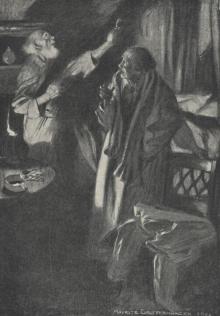 The Monkey's Paw
The Monkey's Paw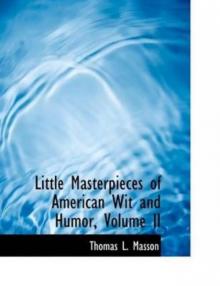 Little Masterpieces of American Wit and Humor, Volume II
Little Masterpieces of American Wit and Humor, Volume II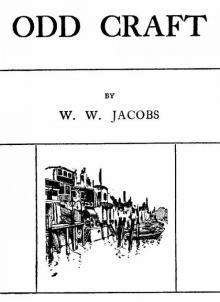 Odd Craft, Complete
Odd Craft, Complete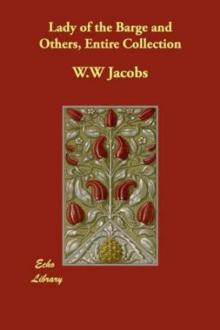 The Lady of the Barge and Others, Entire Collection
The Lady of the Barge and Others, Entire Collection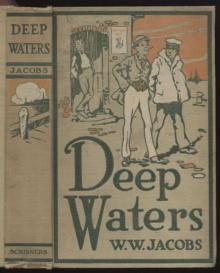 Deep Waters, the Entire Collection
Deep Waters, the Entire Collection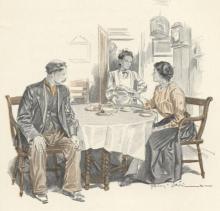 Three at Table
Three at Table Light Freights
Light Freights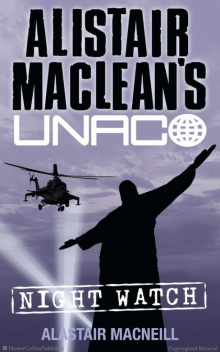 Night Watches
Night Watches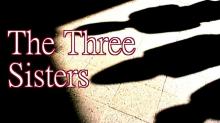 The Three Sisters
The Three Sisters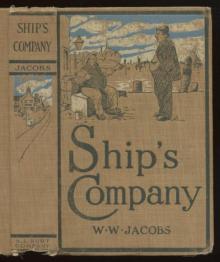 Ship's Company, the Entire Collection
Ship's Company, the Entire Collection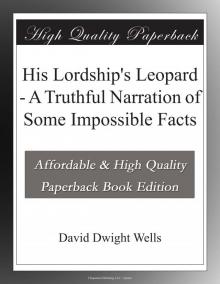 His Lordship's Leopard: A Truthful Narration of Some Impossible Facts
His Lordship's Leopard: A Truthful Narration of Some Impossible Facts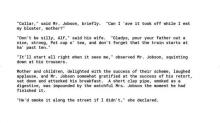 Fine Feathers
Fine Feathers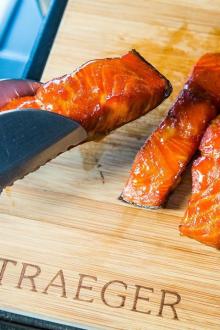 My Man Sandy
My Man Sandy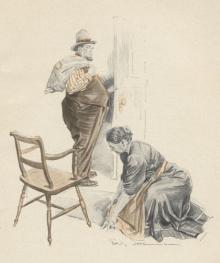 Self-Help
Self-Help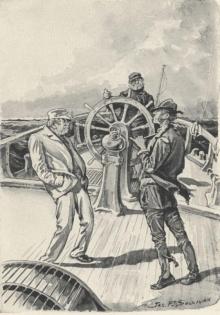 Captains All and Others
Captains All and Others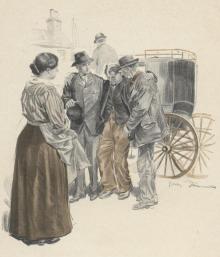 Back to Back
Back to Back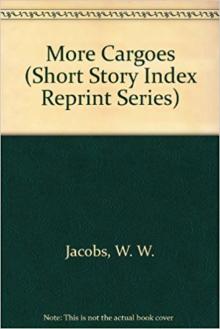 More Cargoes
More Cargoes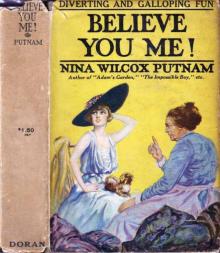 Believe You Me!
Believe You Me!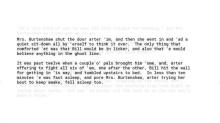 Keeping Up Appearances
Keeping Up Appearances The Statesmen Snowbound
The Statesmen Snowbound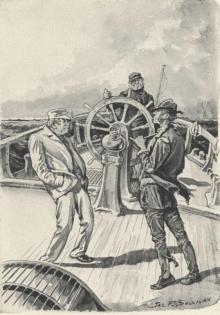 An Adulteration Act
An Adulteration Act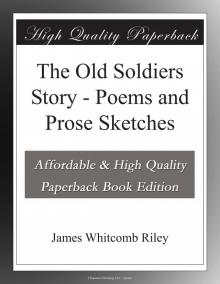 The Old Soldier's Story: Poems and Prose Sketches
The Old Soldier's Story: Poems and Prose Sketches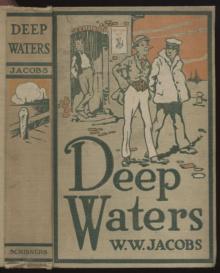 Husbandry
Husbandry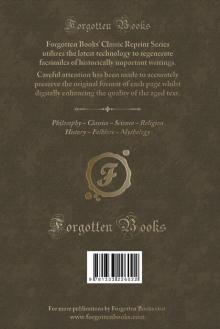 Love and the Ironmonger
Love and the Ironmonger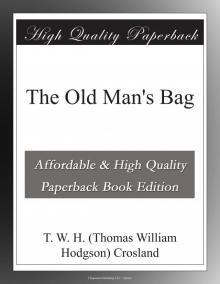 The Old Man's Bag
The Old Man's Bag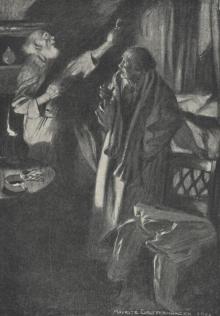 Dirty Work
Dirty Work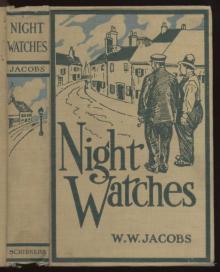 Easy Money
Easy Money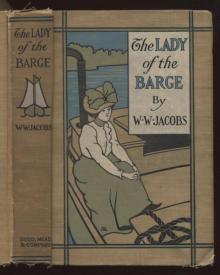 The Lady of the Barge
The Lady of the Barge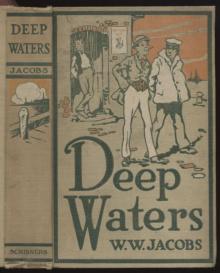 Bedridden and the Winter Offensive
Bedridden and the Winter Offensive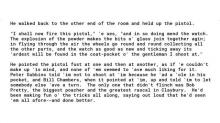 Odd Charges
Odd Charges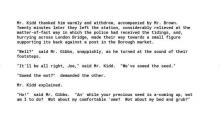 Friends in Need
Friends in Need Watch-Dogs
Watch-Dogs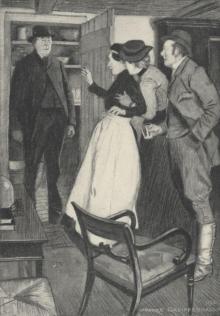 Cupboard Love
Cupboard Love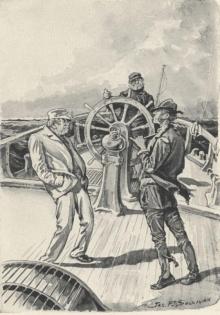 Captains All
Captains All A Spirit of Avarice
A Spirit of Avarice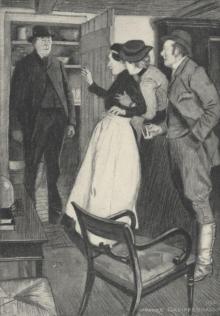 The Nest Egg
The Nest Egg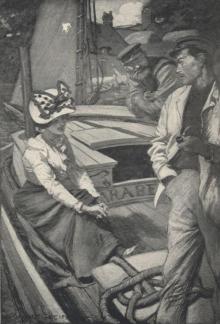 The Guardian Angel
The Guardian Angel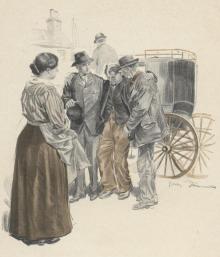 The Convert
The Convert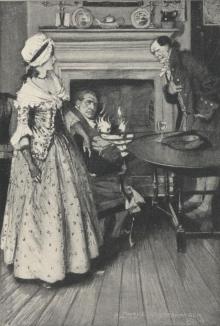 Captain Rogers
Captain Rogers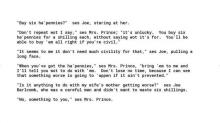 Breaking a Spell
Breaking a Spell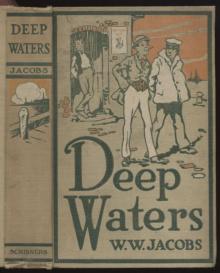 Striking Hard
Striking Hard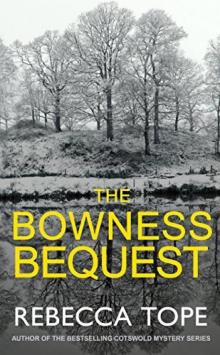 The Bequest
The Bequest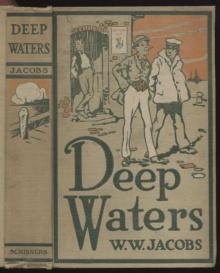 Shareholders
Shareholders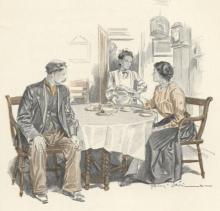 The Weaker Vessel
The Weaker Vessel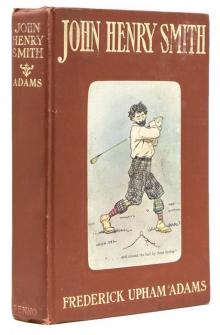 John Henry Smith
John Henry Smith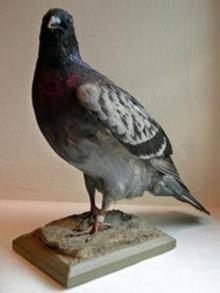 Four Pigeons
Four Pigeons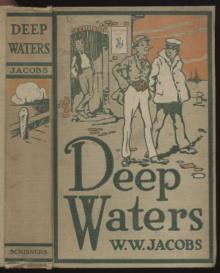 Made to Measure
Made to Measure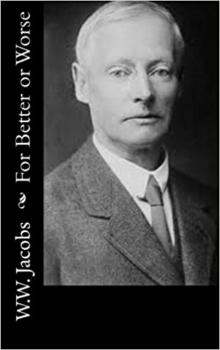 For Better or Worse
For Better or Worse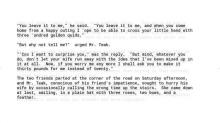 Fairy Gold
Fairy Gold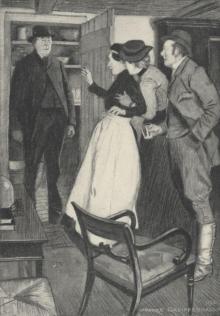 Family Cares
Family Cares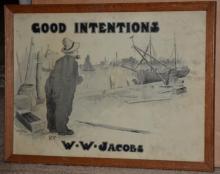 Good Intentions
Good Intentions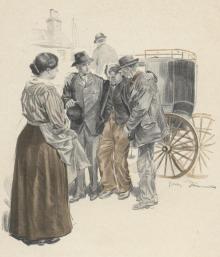 Prize Money
Prize Money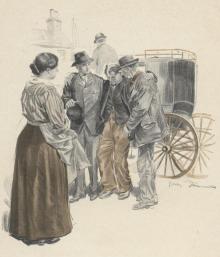 The Temptation of Samuel Burge
The Temptation of Samuel Burge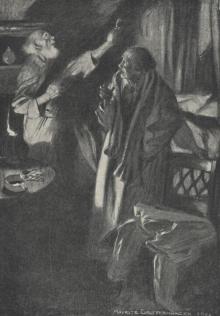 The Madness of Mr. Lister
The Madness of Mr. Lister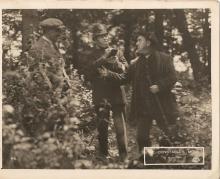 The Constable's Move
The Constable's Move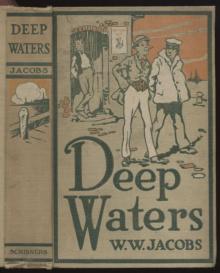 Paying Off
Paying Off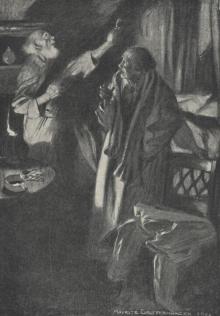 Double Dealing
Double Dealing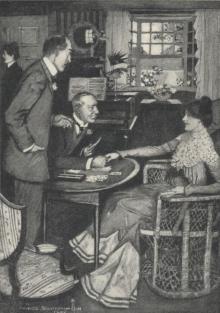 A Mixed Proposal
A Mixed Proposal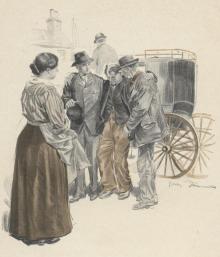 Bill's Paper Chase
Bill's Paper Chase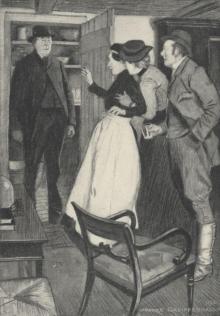 The Changing Numbers
The Changing Numbers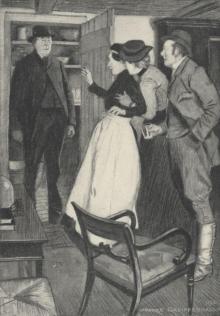 Over the Side
Over the Side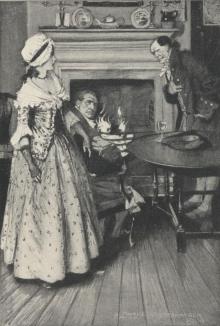 Lawyer Quince
Lawyer Quince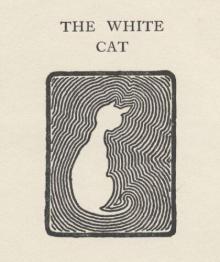 The White Cat
The White Cat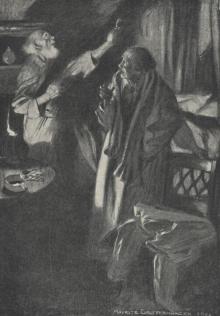 Admiral Peters
Admiral Peters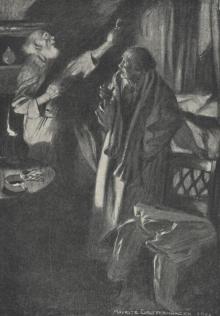 The Third String
The Third String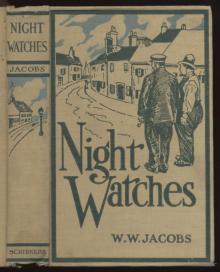 The Vigil
The Vigil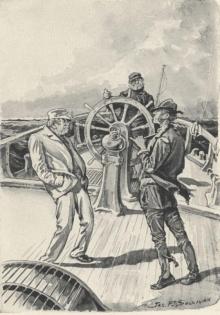 Bill's Lapse
Bill's Lapse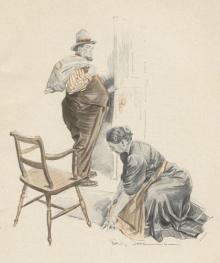 His Other Self
His Other Self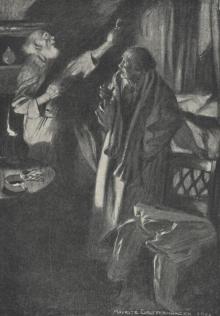 Matrimonial Openings
Matrimonial Openings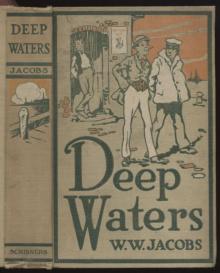 The Substitute
The Substitute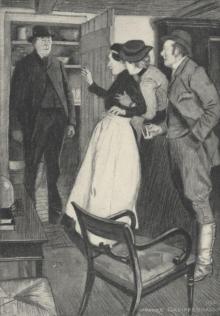 Deserted
Deserted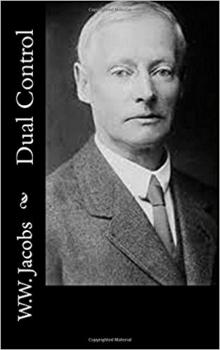 Dual Control
Dual Control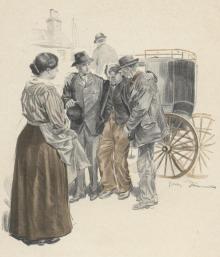 Homeward Bound
Homeward Bound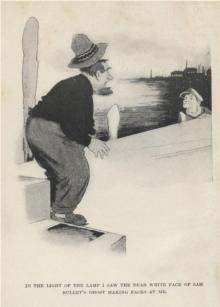 Sam's Ghost
Sam's Ghost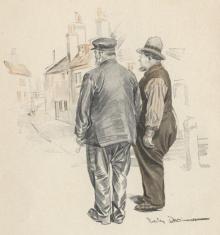 The Unknown
The Unknown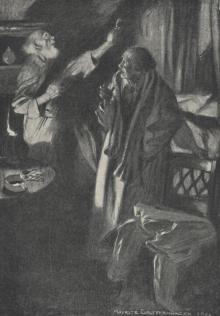 Stepping Backwards
Stepping Backwards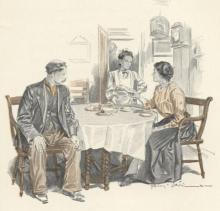 Sentence Deferred
Sentence Deferred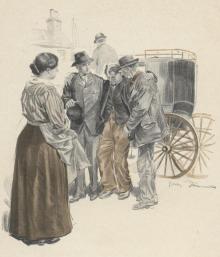 The Persecution of Bob Pretty
The Persecution of Bob Pretty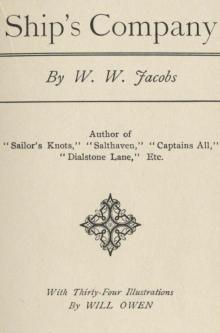 Skilled Assistance
Skilled Assistance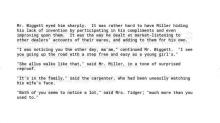 A Golden Venture
A Golden Venture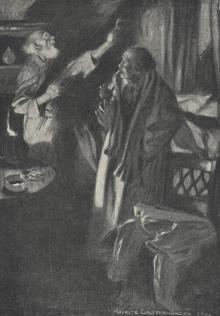 Establishing Relations
Establishing Relations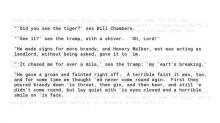 A Tiger's Skin
A Tiger's Skin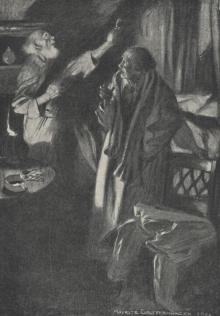 Bob's Redemption
Bob's Redemption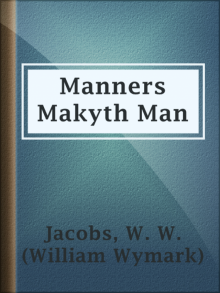 Manners Makyth Man
Manners Makyth Man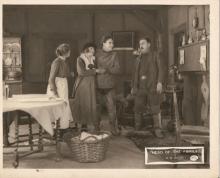 The Head of the Family
The Head of the Family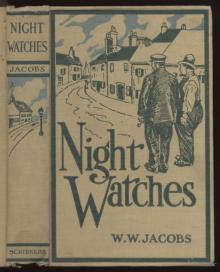 The Understudy
The Understudy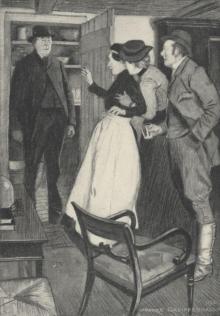 Odd Man Out
Odd Man Out Once Aboard the Lugger-- The History of George and his Mary
Once Aboard the Lugger-- The History of George and his Mary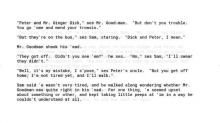 Peter's Pence
Peter's Pence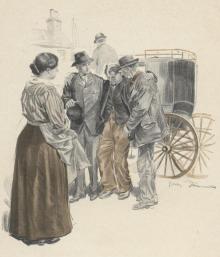 Blundell's Improvement
Blundell's Improvement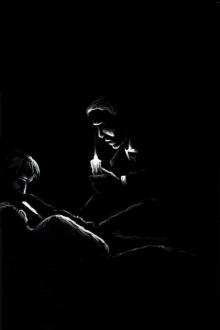 The Toll-House
The Toll-House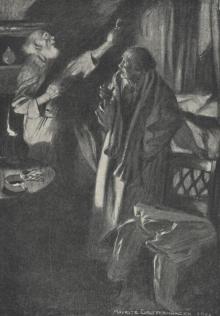 Dixon's Return
Dixon's Return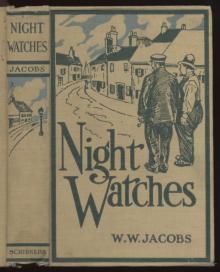 Keeping Watch
Keeping Watch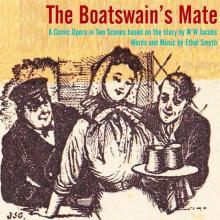 The Boatswain's Mate
The Boatswain's Mate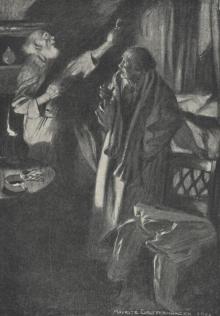 The Castaway
The Castaway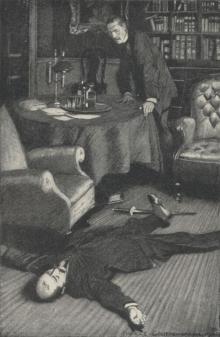 In the Library
In the Library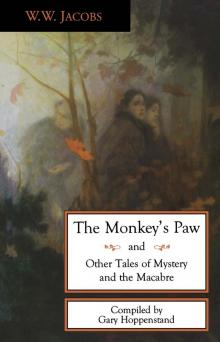 The Monkey's Paw and Other Tales Of Mystery and the Macabre
The Monkey's Paw and Other Tales Of Mystery and the Macabre